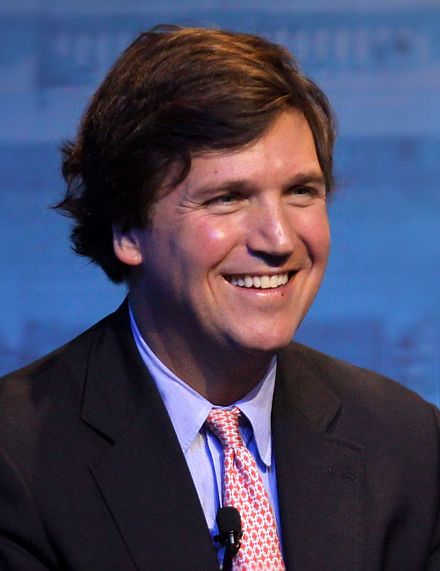Nationalism confronts the question our elites struggle to escape.
A Reformist and Populist Party

Two course corrections, one trajectory: Reformicons and Populists need each other.
Tucker Carlson’s now-infamous January 2nd television monologue pointed in the direction of a post-Trump conservative populism that recognizes the bankruptcy of Zombie Reaganism—a much-needed reckoning. But Carlson himself admits that populism currently lacks realistic answers to the problems of America’s wage-earners. Conveniently, a group of intellectuals called reform conservatives or “reformocons” have spent more than a decade developing some potential answers. For good or ill, these reformocons have spent the past decade plying their trade before a corrupt and smug Republican establishment. Reform conservatives need to break free of their dependence on the Republican lobbyist-class blob, and populism needs an agenda that goes beyond complaints, however well-founded.
The reformers and the populists need each other, and America needs them both.
What Tucker Gets Right
Carlson is right that a Zombie Reaganism agenda of tax cuts for the rich and indifference to the struggles of wage-earners is a loser that deserves to lose. As Carlson asked Charlie Kirk about the world Zombie Reaganism made, “If everything is great, then why are people killing themselves at this rate?” Kirk’s answer—“because the church is broken, because the family has been broken”—brilliantly encapsulates the Zombie Reaganite’s superficial piety and deep cruelty. Kirk goes on to blame the “Great Society” and “central planning.” Taken at face value, he, not Carlson, is the radical. Repairing the family and repealing the Great Society would be an enormous task. But Kirk is all talk, and thoughtless talk at that. He isn’t going to end food stamps and housing vouchers for families headed by a working-aged parent. He is only bringing up these issues to dismiss them.
This is the same trick Republicans once played on health care policy. They would mumble something about tort reform, and then when Democrats filibustered it in the Senate, they would change the subject to capital gains tax cuts and missile defense. They didn’t care about health care policy any more than Kirk cares about the struggles of wage-earners. But those Republicans tricked only themselves, because the public actually cares about health care. We ended up with Obamacare, and are hurtling toward single-payer. Now they are doing it again: Oh, we aren’t going to end the welfare state for the working-aged? Then that leaves a tax cut for Bain Capital as our only alternative.
Kirk knows that he has a better chance of becoming president of Harvard than repealing the Great Society. For all his rhetorical bluster, he has made peace with the welfare state. He just doesn’t want to think about it. Could the welfare state be friendlier to work, marriage, and parenting? The Zombie Reaganites will say they want it to be neutral. That’s a lie too. They want to dismiss the discussion with some talk about LBJ, church attendance, and central planning. The only thing they can imagine doing for working-class families is to cut taxes on Mitt Romney’s family. Carlson is right to intuit that Zombie Reaganism is the surest path to popularizing Alexandria Ocasio-Cortez’s socialism.
What Tucker Gets Wrong
The biggest thing that Carlson gets right is that our standard should be human flourishing rather than freedom defined as the lowest possible tax rate on the highest-earners. Where he sometimes goes wrong is in how he hopes to achieve that flourishing.
Carlson laments manufacturing employment’s decline and compares the present situation to the wrenching change from agriculture to industrial wage labor. To the extent that he is right, his view counsels against a politics of economic nostalgia. Modern societies dealt with industrialization not by recreating the agricultural economy (though a minority that continued to farm were able to extract some subsidies), but by building institutions (like social security and unemployment insurance) that mitigated the wage economy’s risks.
The challenge isn’t to recreate the industrial economy of 1955 or 1967. That isn’t going to happen. No matter who gets elected president, Maytag (for instance) probably isn’t going to bring back its factory, and even if it did, it almost certainly wouldn’t bring it back to Newton, Iowa. Policy might be able to slightly increase the share of workers in manufacturing, but, like basically every other advanced economy, the majority of American workers will be in the service sector. The goal should be helping those workers flourish.
Carlson also misfires when he complains that society is teaching women that they should “lean in” and think of their primary responsibility as being to shareholders rather than to children. There is probably some truth to that, but there is more error. If anything, Americans want to marry and have children at higher rates than they are currently able, whatever the elite is trying to tell them. Our system isn’t failing at stimulating the desire for family, but is rather successfully frustrating the reality of family formation—as Carlson pointedly argues in his monologue.
There might well be some affluent, professional women who end up regretful that they pursued career goals at the expense of family, but their regret should be low on our list of problems. As Charles Murray and others have pointed out, our marriage markets are most broken not among the college-educated professional classes, but among the least-educated wage-earners.
College educated women are no less likely than their less educated sisters to marry, much less likely to divorce and far less likely to have children out of wedlock. Our family flourishing problem is worst among the financially unstable, not among businesswomen. And as for the saddest indicators of human flourishing, our problem isn’t salaried women leaning in, but poor, lonely women killing themselves with drug overdoses.
There is one more danger in Carlson’s “lean in” criticism. Populism is most likely to work to the extent that it goes with the grain of public desires—or at least avoids unnecessary conflicts. Some (not all) affluent and educated women like prioritizing their careers and they don’t have to be enemies of populist conservatism. If you want to make sure that your agenda goes nowhere, gratuitously shame salaried women for dropping their kids off at daycare. There is a better way.
A populist agenda should be able to realistically encourage people to achieve their own personal goals and balance parental work and childcare responsibilities as best fits their family. For some families that might mean dropping the kids off with the grandparents. For others, it might mean that one of the parents shifts to less paid labor while the children are very young, and for some it will mean sending children to commercial daycare providers.
A conservative working-class agenda is far less likely to be implemented if it is seen as culturally hostile to professional women. The best chance is for something like Ross Douthat’s suggestion of a socially conservative feminism that seeks to make use of women’s talents in the marketplace or at home as the women themselves want to use them, while also supporting marriage and parenthood.
The final element missing from Carlson’s populism is the understanding that a successful conservative populism (rather than just a doomed rearguard action) will require a cross-ethnic coalition. That means it would involve recruiting, in large numbers, the children and grandchildren of the post-1965 wave of immigration.
Immigration reform can be a part of it. Economists disagree about immigration’s effects on native-born low-wage workers, but they largely agree that existing low-skill immigrants are the ones whose wage are most hurt by future low-skill immigration.
It shouldn’t be impossible to win over a larger share of this population to a populist conservatism, but that can only be done under two conditions. First, restricting future low-skill immigration can only be credibly argued as being in their interests if it is part of a broader package to help them and other American wage-earners. In that sense, Mitt Romney’s combination of self-deportation plus contempt for 47 percent of Americans as slackers was about the worst way to win over the working-class, whether foreign or native-born.
Second, these foreign-born Americans and their children have to be unambiguously part of the “we” in “we are in this together.” You can’t do that if you signal relentlessly that they are all a bunch of rejects (at best) from MS-13.
Respect matters. One of the reasons why Obama did better than Hillary Clinton among working-class whites is that he spread a message designed to win them over. He knew he wasn’t going to win his largest margins among working-class whites and he stumbled sometimes, but he offered more than Clinton’s combination of indifference and disdain. It was a big part of why Obama got to be president and Clinton did not.
Carlson’s warnings to Zombie Reaganites also applies to conservative populists. If conservative populists don’t want the Left’s weird combination of open borders and socialism to win, they need to start treating nonwhite wage-earners with the same respect as rural whites.
What the Reformocons Got Right
The Reformocons understood two important truths about the contemporary center-right. First, the old approach to taxes was not politically sustainable, nor did it obtain the biggest policy gains for the buck. Tax rates are not unimportant, but the average worker would not see much difference in economic growth if the top tax rate was set at 35 percent or 40 percent. The establishment Republican discourse on taxes depended on absurdly overpromising the benefits to wage-earners of modestly cutting their bosses’ taxes. These promises lacked both economic and political credibility.
Second, the Reformocons understood that there was no going back. Trade deals were not going to broadly reindustrialize the American economy. The answer was changing American institutions to help America flourish under current circumstance.
That also meant that there wasn’t one right answer. It would take many policy changes that improved the policy environment for parents and workers. There was no one way to make America great again, but many ways to make work and family life a little better for struggling Americans.
Part of the answer would be a tax system that prioritized working parents for the next round of tax cuts. It would include higher education reforms that make it easier for workers to get new skills without having to spend years taking classes they don’t need and then graduating (or worse, not graduating) with crushing student debt. It would mean a health insurance system in which workers had more and better options than they do under Obamacare, while helping drive down the cost of medical care. It could mean a lump sum unemployment insurance payout and relocation subsidies for workers in economically depressed areas to go to where the jobs are. For the more politically ambitious, the socially conservative Institute for Family Studies found that Hungary’s family subsidy program produced a surprising turnaround in the marriage rate. This should be especially important given America’s cratering marriage rates and fertility.
These programs form part of a conservative working-class and pro-family agenda. One of the ironies of our moment is that the college-educated are more likely to move than the wage-earners who have the least opportunity where they are currently living. This is less surprising when one considers that college-educated Americans have better marriage markets and stronger social networks (professional, religious or just the PTA). If college-educated workers move, they still have a pretty good chance of getting married and having friends. The less educated—with worse marriage markets and weaker social networks—are taking a bigger risk. Moving to find a job means losing their few social networks and still having no good chance of marriage. Even moving to begin a job looks like a potential life sentence of loneliness. That being the case, family and work subsidies are complementary policies that make people better able to move because they are embedded into families.
Carlson said that we should want more than prosperity. He rightly says we should understand that our fellow Americans are relational beings and our institutions are producing ever-more Americans who are not marrying, are alone, and are killing themselves out of despair. No one would suggest that the reform conservatives have the whole answer (or that the whole answer could be found in public policy), but they are headed in the right direction, and reform conservatives should be allies to a populist conservatism that is about more than nostalgia and resentment.
What the Reformocons Got Wrong
The main political problem with reform conservatism is that its champions among elected Republicans (like Eric Cantor and, at least until recently, Marco Rubio) treated it more like an accessory than an agenda.
Congressman Eric Cantor and his “Young Guns Network” had excellent relations with the reform conservative intellectuals and its successor organization, the Conservative Reform Network, published a reformocon manifesto called “Room to Grow.” Unfortunately, both Cantor’s congressional career and the Conservative Reform Network are now defunct. Cantor was widely (and I would guess correctly) suspected of wanting to sneak amnesty and increased low-skill immigration through Congress while publicly professing opposition to those policies. His tone deafness was especially evident in a Labor Day tweet in which he wrote “Today, we celebrate those who have taken a risk, worked hard, built a business and earned their own success.” One of the great things about America is that hard-working proprietors and salaried professionals are deservingly among those celebrated on Labor Day, but Cantor’s implication that only entrepreneurial success is “earned” is one of the best examples (along with Romney’s 47 percent gaffe) of establishment Republican contempt for wage-earners. House Majority Leader Cantor was defeated for his own party’s nomination by unknown insurgent conservative Dave Brat, who tied Cantor to upfront amnesty—though Brat’s own 2018 defeat to a Democrat indicates the limits of a strategy that is too dependent on rural white wage-earners.
Around the same time, Marco Rubio adopted a reformocon inspired wage-subsidy for low-earners, but for every one step he took toward wage-earners, he adopted even more radical Zombie Reaganite policies. His tax plan expanded the child tax credit, but also included vast cuts to investment income. What was worse, Rubio’s responded to Mitt Romney’s 2012 defeat by supporting Washington-style comprehensive immigration reform. This lobbyist’s euphemism meant a large upfront amnesty, and a huge increase in future low-skill immigration. Rubio’s attempt to triangulate between reform conservatism and Zombie Reaganism failed.
He is now moving to pivot toward a more populist and natalist tax policy. But during tax reform, his support for huge tax cuts for high-earners didn’t prevent the Wall Street Journal’s megalomaniacs from condemning his tax plan for doing something to directly help wage-earners. And before that, Rubio’s pro-lobbyist immigration stance destroyed his credibility as an outsider. He ended up disavowing his own immigration plan (though with a great deal of dissembling.) Rubio didn’t just hurt himself. His immigration flip-flopping helped create the space for Donald Trump as the candidate of credible immigration enforcement.
The failures of Cantor and Rubio can be put down to each man’s idiosyncrasies, but it might be better to think of them as having made the same strategic mistake. They both assumed that the GOP agenda was basically healthy, but needed some reformocon updating. They thought that the GOP establishment could be gently co-opted.
They were wrong because did not understand the problem. Cantor and Rubio seemed to have thought of the GOP economic agenda as a basically sturdy house that needed a coat of rhetorical paint and maybe a reformocon shed. It turned out that supplementing an establishment Republican agenda with a few reformocon policies was more like applying skin grafts to a patient with gangrenous internal organs.
Ross Douthat has called Trumpism “Reform conservatism’s evil twin,” but the symmetry is off. Trump’s MAGA agenda—reindustrialization through protectionism, eventually expelling all illegal immigrants, and avoiding any cuts to old-age entitlements—may have brought enormous practical and/or moral problems, but it was an agenda. Reform conservatism was never more than an appetizer in a feast that was otherwise for the donor class.
A Reformist and Populist Conservatism
America’s post-Trump conservative populism needs an agenda that goes beyond false or exaggerated promises. Carlson is right that America is undergoing an economic transformation that is as wrenching as the change from agriculture to manufacturing. But that also means there is no going back. Even if the US could somehow produce German levels of manufacturing employment, the modal American worker, like the modal worker in Germany every other large, affluent economy would still be in the service sector. The populist right needs to have answers that can plausibly offer those Americans better, more dignified lives if they make the choices to work and form families.
America’s reformist conservatives need to accept that the Republican establishment will learn only from total and repeated defeat. With a very few honorable exceptions (like Mike Lee), the Republican blob’s commitment to endlessly cutting taxes on high-earners means that the establishment Republicans will only be able to afford to adopt one or two reformocon ideas as a cover for more tax cuts for the affluent.
The only way out is for reform conservatives and conservative populists to join hands. Carlson is right about the stakes. Zombie Reaganism will lose to socialism because at least Bernie Sanders and Alexandria Ocasio-Cortez are trying to speak to people’s experiences in the America of 2019. Populism lacks a realistic agenda. Reform conservatives have allied with a Republican establishment that is only using them as a cover for high-earner interest group politics. If they are wise, populists and reformers will ally first to defeat Zombie Reaganism within the GOP, and then defeat socialism within the nation as a whole.
The American Mind presents a range of perspectives. Views are writers’ own and do not necessarily represent those of The Claremont Institute.
The American Mind is a publication of the Claremont Institute, a non-profit 501(c)(3) organization, dedicated to restoring the principles of the American Founding to their rightful, preeminent authority in our national life. Interested in supporting our work? Gifts to the Claremont Institute are tax-deductible.
Carlson's provocations are captivating, but his solutions can't capture the center.
The American Founders and Lincoln knew what Tucker Carlson's critics do not: American Government exists to help Americans.
Reflections on the monologue that rocked the Right.




